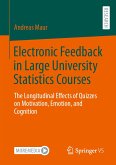Albert-László Barabási, Robert Gray Dodge Professor of Network Science, Northeastern University: "In a world where interconnectedness has fostered global prosperity, it has also introduced vulnerabilities that can escalate local failures into worldwide crises. "Feedback" by Peter Erdi explores this double-edged sword, offering a solution through the power of feedback mechanisms. These tools are designed to mitigate the negative impacts of connectedness, steering the complexity of modern life towards outcomes that enhance human welfare."
Patrick Grim, Philosopher in Residence, Visiting Scholar, Center for Complex Systems University of Michigan: "Érdi demonstrates that many of the critical problems we face-from climate crises to economic instability to the threat of terrorism-operate as runaway feedback loops. The first challenge is to understand them. The second is to introduce control mechanisms on the model of biological homeostasis-a different form of feedback-that will guide us toward a more sustainable social future. Érdi applies the analytic tools of complex systems to some of the most complex issues we face."
Ichiro Tsuda, Specially Appointed Professor at Sapporo City University, Sapporo, Japan, leaving Chubu University Academy of Emerging Sciences (Director and Professor), Chubu University, Japan: "This book is dangerous, because of making your own consideration on feedback impossible to stop by a continual feedback process of yourself. Nevertheless, you must be given a method of finding very narrow boundaries between prosperity and destruction, therefore this book is extremely valuable. We all must read."
Dieser Download kann aus rechtlichen Gründen nur mit Rechnungsadresse in A, B, BG, CY, CZ, D, DK, EW, E, FIN, F, GR, HR, H, IRL, I, LT, L, LR, M, NL, PL, P, R, S, SLO, SK ausgeliefert werden.









